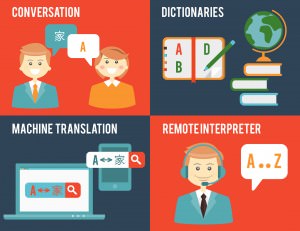
Who needs human document translation services when there are machine translations? That is a question the professional translation services industry is increasingly grappling with. Machine translation programs are capable of learning. They use machine learning to render increasingly sophisticated and natural-sounding translations. Many are saying it is a full-blown coup d’état. But let’s not get too enthusiastic. Claims that it is the end of the professional translation services industry as we know it are premature.
Machine Document Translation Services Are Improving
A machine translator will use publically available translation data in traditional machine translation. It collects data for a range of different documents. For example, the machine will use documents already translated from English to French. Using this data, the machine will judge how to best translate a particular phrase or sentence from English to French. A machine-learning algorithm will crunch all of this available data to detect patterns. This is how machines “learn” to translate. There is no denying that machine-learning translations are getting better. They are getting more adept at specialized translations, for example. This includes medical, legal, and technical translation services. Many machine translators can even receive human feedback. That means that if a human inputs a “better” translation, the machine will remember it and use it in the future.
But Are Machine Document Translation Services Good Enough?
According to consulting firm Common Sense Advisory, the industry still generates much revenue. Revenue generation in the translation and interpreting industry is approximately $37 billion annually. That means that despite the rise of machine translation services, human translators are still stealing the lion’s share of the business. That is because they offer a quality that machine translation services simply can’t offer.
The standard of machine document translation is generally acceptable. But machine voice translation services still have a long way to go. There are notable limitations. “In a way, you have to make a compromise.
You have to know whom you are talking to. You are talking to a speech recognizer, a machine,” explained Joseba Abaitua. Abaitua is a professor at the modern foreign languages department at the University of Deusto. He explained that a machine can typically handle the translation when people speak slowly and clearly in short sentences. “The machine can start understanding you quite well. But if you start talking with many colloquialisms, then the whole system breaks down,” he added. For a complete critique of voice language translation apps, check out this BBC article.
The bottom line? It is unlikely that machines will ever usurp humans in the professional translation services industry. This is especially true regarding specialized translation services, like legal or technical. Machine translation can help improve the accuracy and efficiency of human translation.
